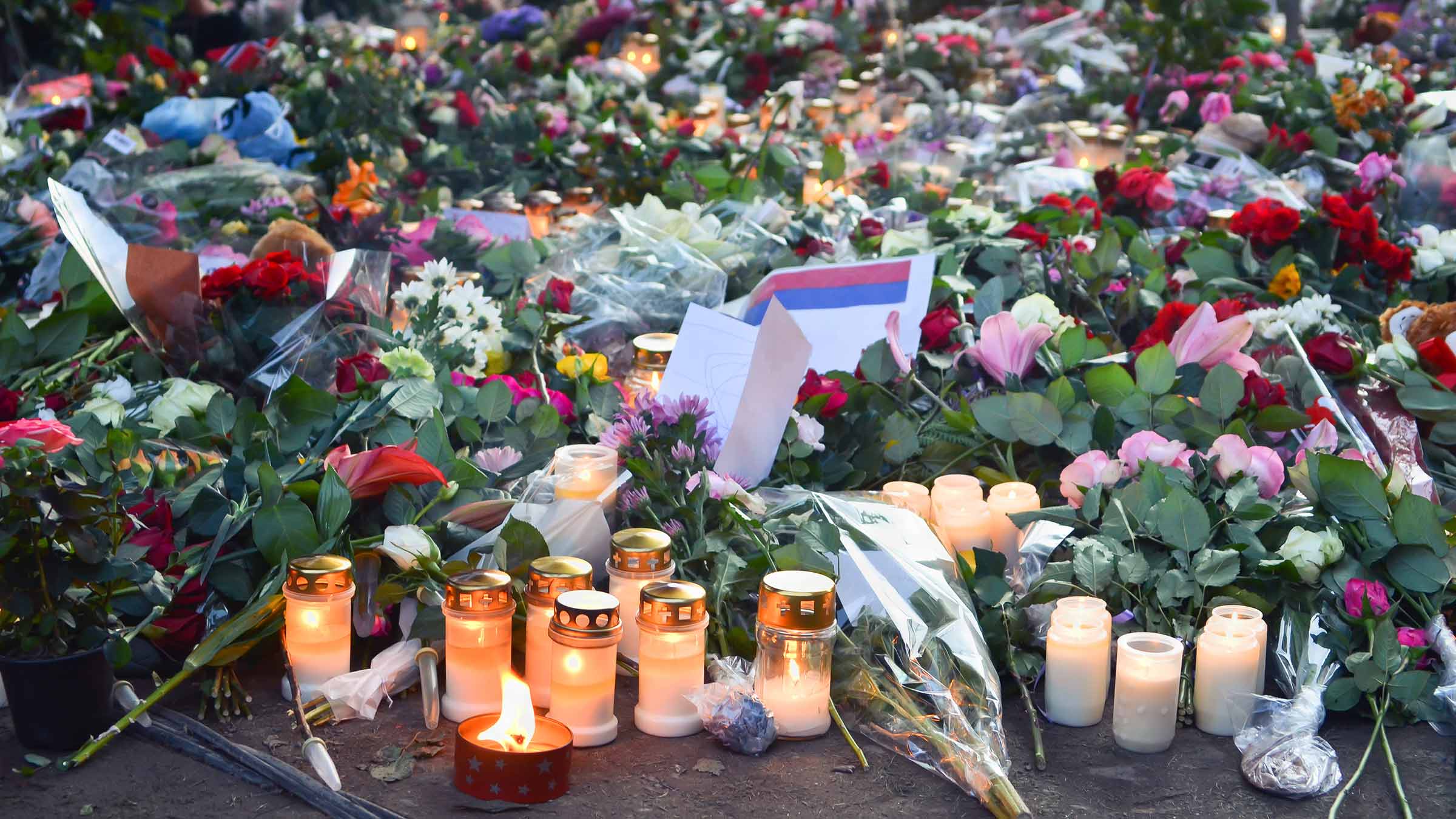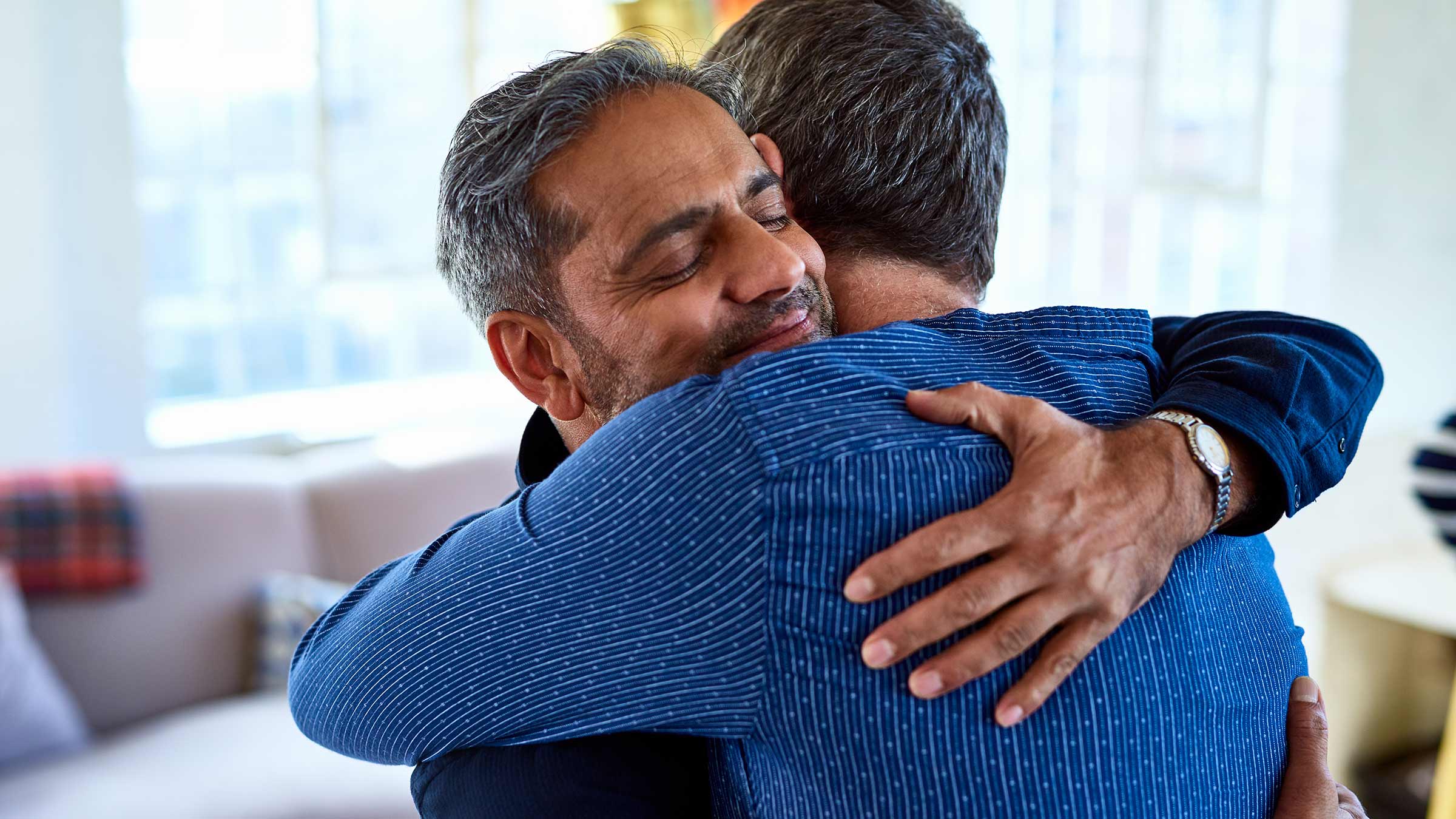
When celebrities die, we often find ourselves trying to process the grief that comes from losing someone we don’t even personally know.
For many of us, celebrity deaths can hit surprisingly hard.
In most cases, these are people you’ve never met. Perhaps he was a sports legend or a Hollywood icon. Or she was a famous singer or TV personality.
You’ve formed an emotional attachment to this person, and their death can be understandably upsetting. It could be that you bonded over an affinity for this person, or they may have been your inspiration to pursue a new sport or acting class.
Identifying with the celebrity
Celebrity deaths may affect us deeply when we can identify with those celebrities so much that we believe they experienced some of the same things we did. We may have connected with them during a particular time in our life or gone through similar life circumstances. These deeply personal associations may lead us to feeling a strong connection with them, even after they die.
If you personally experienced an illness or perhaps have lost a spouse, you might be more impacted by the death of a celebrity who died from similar circumstances.
Through social media, we often have more insight into the personal lives of celebrities, allowing us to deal what’s sometimes called a parasocial relationship that’s one-sided. This allows us to find more ways to connect with them in life and death, possibly increasing the feelings of loss.
How the celebrity died can influence your grief
The way in which the celebrity died may affect how you grieve them. For example, Matthew Perry was seen as a funny and enigmatic figure who was fairly open about his struggles with substance use. To find out he died from the effects of his substance use was distressful for many people.
While it may feel weird to experience grief for someone you don’t know, rest assured that it’s entirely normal. Others may not understand why you’re grieving the person, but your grief can be deeply personal.
Regardless of the type of relationship that you felt to that person, that relationship has still fundamentally changed, and that’s where the difficulty stems from.
What is normal when grieving?
Everyone grieves differently. There’s no one right way to grieve. You might experience deep sadness, unexpected tearfulness or reduced motivation. You might sleep more than usual or have trouble falling asleep. You may have difficulty controlling your thoughts, a preoccupation with thoughts of the person who died or fears that something bad might also happen to you or someone else you care about.
Grief is such an intense and unique emotional experience that it can also cause physical aches and pains, fatigue or even exhaustion.
While depression or anxiety are not a direct symptom of the grieving process, if grief is avoided or is particularly difficult, depression and anxiety disorders can develop over time.
Some people may appear to move forward through the grieving process seamlessly, while others struggle a bit more. The hope is that, over time, and through various coping methods, you can experience the loss in healthy and meaningful ways.
Memorials and online forums help express grief
Both in-person memorials and online support strategies can allow us to feel connected to a greater group who shared our affinity for the person and who also understand our grief on a different level.
This allows us to feel validated and gives us a space to more safely express our feelings and reduces the loneliness that grief can lead to.
Making a donation or a memorial or leaving mementos such as stuffed animals, candles or sports jerseys can help us express our grief in a tangible way. It allows us to still feel connected to that person through giving and promotes a feeling of remembering the legacy.
When memorials are more permanent or donations are recurring, it can enable us to feel as though we’re carrying their memory forward, not letting them die in spirit, even if they’ve died in body.
Tips to help cope with celebrity deaths
Use your social or professional support network
Call your friends or family. Share with them what that person meant to you and how they’ve impacted your life. Sometimes, just a listening ear or talking to someone who can relate can be really helpful. People can’t support us well if we haven’t shared what we’re going through with them.
If you have a routine appointment with a health care provider and they ask how you are, share about your loss and how it’s impacting you. Reach out to a mental health professional if you think it would be helpful.
When celebrities die, that can be a wake-up call for us to face our own mortality, which can be upsetting. Death is scary for many people. For some, it’s their greatest fear. Talking about that with others can normalize the feeling while also reducing its strength.
We tend to avoid talking about things that make us uncomfortable, but just the act of talking about it can often make it easier to deal with.
Cut down on using social media use and increase activities offline, such as hobbies
Social media and other news outlets can help form a connection to others.
However, the problem is that it tends to offer a continuous stream of information. This results in frequent exposures to the story and images of the celebrity. While social media can be useful, it can reinforce negative thoughts and emotions.
When we’re sad, we’re more likely to gravitate toward images and pages with similar experiences. This can strengthen the emotion in the moment, as it’s commiseration without real connection.
Doing something active like a hobby or activities gets us interacting with the world and into the mode of feeling accomplished. It serves as both a positive distraction and a healthy coping strategy.
Practice gratitude
For example, think about what you do have and maintain gratefulness for this. Evidence shows that being grateful can improve your mood significantly.
Take care of yourself with proper sleep, healthy food and exercise
By getting enough sleep and exercise as well as eating healthy meals and snacks, you’ll not only improve your physical wellbeing, but also help regulate your emotions.
Mindfulness and meditation can be useful as well.
Experience your emotions and try not to judge yourself for having them
It’s important to be kind and gentle to yourself. Experience your feelings in a safe and non-judgmental way, such as by surrounding yourself with positive support people, or by engaging in some sort of memorial ritual.
Grief is a normal process. But if you feel like your experience of grief is too much for you to handle on your own, or you’re having disruptions to your daily life that are impacting your mood, wellbeing and physical health and safety, you may need professional help.
Don’t be afraid to reach out for professional grief counseling or support groups. Grief can cause us to feel overwhelmed with feelings that don’t feel good and can trap us into only thinking about what we lost.
A good resource to keep handy in case you or a loved one experiences suicidal thoughts is 988. You can call or text 9-8-8 to be connected with the 988 Lifeline for Help 24 hours a day, 7 days a week. This is a free, confidential and convenient way to get immediate help.

Help for mental health conditions
Ohio State offers personalized, compassionate care for your mental health concerns.
Learn more



